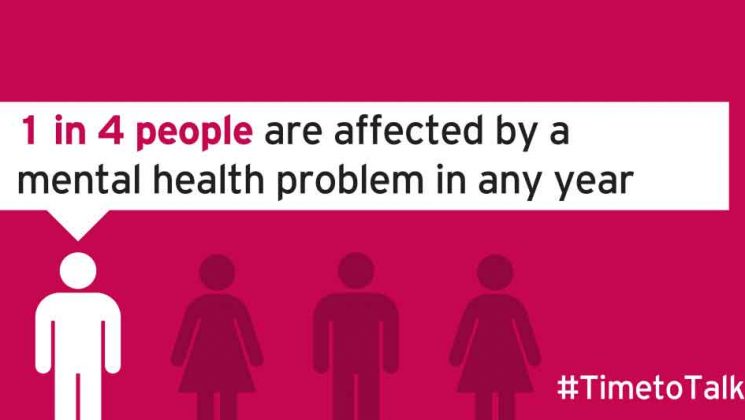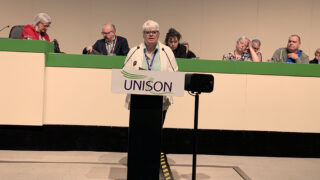“Workplace mental ill health is a growing issue,” as cuts and increased pressures bite, service group executive speaker Lynn Poulton told local government conference this morning in a long, and at times emotional, debate on workplace mental health.
One quarter of people reported experiencing a mental health issue in the last year in a recent survey – but the figure rose to between a quarter and a third for disabled, LGBT and Black members, she told delegates.
Walsall delegate Manjula Kumari told conference that “workplace stress is the highest cause for local government employees to see their GPs – and they only go when they can’t carry on without medical help.”
But, she declared, “we do not go to work to be abused, to take medication with a stigma attached, to be signed off sick.”
And John Cowings of Derbyshire told conference that every member he is currently representing in his branch has a mental health problem.
There is “a culture of fear, and intimidation, and anxiety” affecting members, Nottingham’s Adrian Picton told conference.
As member after member queued up to talk about the issue and in some cases share their own experiences of dealing with mental health issues, there was no doubt about a primary cause of what is a growing problem affecting more and more local government workers.
Austerity, leading to both cuts to services and a growing demand for services which are vitally needed in our communities, was cited by speaker after speaker.
Northumberland member Mick Bowman is a mental health social worker and said: “I have seen first hand the devastating impact of austerity on communities and on colleagues.
“We must remember,” he added, “that employers have a legal duty to protect workers’ health – including mental health.”
Conference agreed to “campaign for improved support for all workers experiencing mental health issues, including using all means possible to make employers aware of the impact of cuts on their staffs’ mental health,” with a range of concrete measures to update and promote UNISON’s guidance on the issues, campaign, and negotiate with employers.
As Jennifer Black, a delegate from UNISON LGBT conference reminded delegates: “It’s the working environment that needs changing, not the person.”
And UNISON made an immediate start on the work called for with a Time to Talk session in the lunch break that followed the debate.








